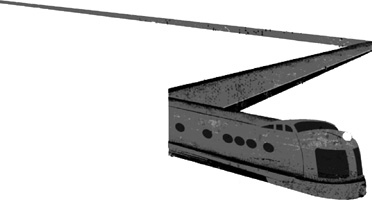

“May I take your picture?” I ask Mr. James Ito one day. “My friend Cejas of the train gave me this camera.”
At first Mr. James Ito looks puzzled by this request, seeing nothing in my hands. Then, as I move toward him he sees that the camera is imaginary and gives one of his rare and shallow smiles.
“By all means,” he says with a slight bow and poses like an old-fashioned gentleman, stiff and somber but with a twinkle hiding somewhere close.
I bow also to begin.
I show him the result.
“A good likeness,” says Mr. James Ito in a satisfied way.
Mr. James Ito lives in a tiny house. Much tinier than ours. It is a long time before he invites me in. Maybe, like me, he is also not a truster.
When Mr. James Ito first asks me to enter, I feel that there is something more happening than just white-haired me going into a house. That he has made a big decision, to be my friend, look out for me.
Abue taught me that people are sent to you, “guides” she calls them, to cross your path and to help you through life. There are bad ones also who try to drag you to hell-places, but you do not follow them. Like Papi’s maíz you go for the light. Maybe Mr. James Ito has come to guide me in place of Abue and Papi. With his many years like the rings of a tree, his many wrinkles, his life crosses mine to give his many wisdoms. He is a sage. (Word-of-the-day.)
As we go into the house our eyes meet. We know our new situation.
I notice that Mr. James Ito leaves his sandals outside of the house. I leave my shoes outside also. Looking down at them I think, Once I wore no shoes. From this time on, when inside someone’s home, I go in stocking feet.
“Why do you remove your shoes, hermanito?” Toño asks.
“For respect to the floor,” I say. And to myself, I think, And to remind me of home, where I was shoeless.
This small place of Mr. James Ito has not one speck of dust anywhere. It is without many furnitures and neat neat. In the entry there is nothing but a grainy photograph, just one, black-and-white, hanging like a holy thing. It shows a field stretching away away, and in the furrows a family pausing from their work, grinning, all happily. One of these people, I believe, is Mr. James Ito, but young young.
The picture at once gives me a pang for home. For our milpita. I go close to it. “What grows there?” I ask, hoping for corn.
“Strawberries,” Mr. James Ito says. His voice is quiet, his eyes sad.
Quickly I look away and notice a surprising thing that I cannot stop staring at. I walk up to it and smile, for this is the tiniest tree that I have ever seen. Also the most beautiful, with its perfect little leaves, its graceful little branches. And the tiny plot of earth that holds it seems to say, I am the land, a small piece but precious. I am enchanted.
“Do you like this tree?” Mr. James Ito asks me, though his voice says he already knows the answer. The field picture that saddened him he forgets it seems.
“Oh, yes.”
“It is a bonsai,” he tells me. “A dwarf tree. It took many years to make it so.”
“You made it this way?”
“I did.” No pride. Only truth. His speech is as spare as his home.
“How many years?” I ask.
“Seventy years and I still work.”
“What took so long?” I blurt, then feel my face flame from my rudeness.
One of Mr. James Ito’s smiles skims his face butterfly-like.
“Patience is the way. It takes a lifetime to create beauty. But one must keep working at it. To add beauty to the world—goodness too—these things are of importance.”
The Angels is all flashy and big. Big cars. Big buildings. Big signs. But beauty is right here in the smallest thing.
“May I take its picture?” I ask at my politest.
“Of course.”
“Click.” There it is, Mr. James Ito’s bonsai, for always, thanks to Cejas.
Here, in my new—and old—friend’s house I feel Papi and Abue holding my hand from afar, showing me the way.
After the visit I float home.
Toño is already gone but I leave a Post-it where he cannot miss it. It says one word: bonsai.
The bonsai has enchanted me, but it is the strawberry field that haunts me.